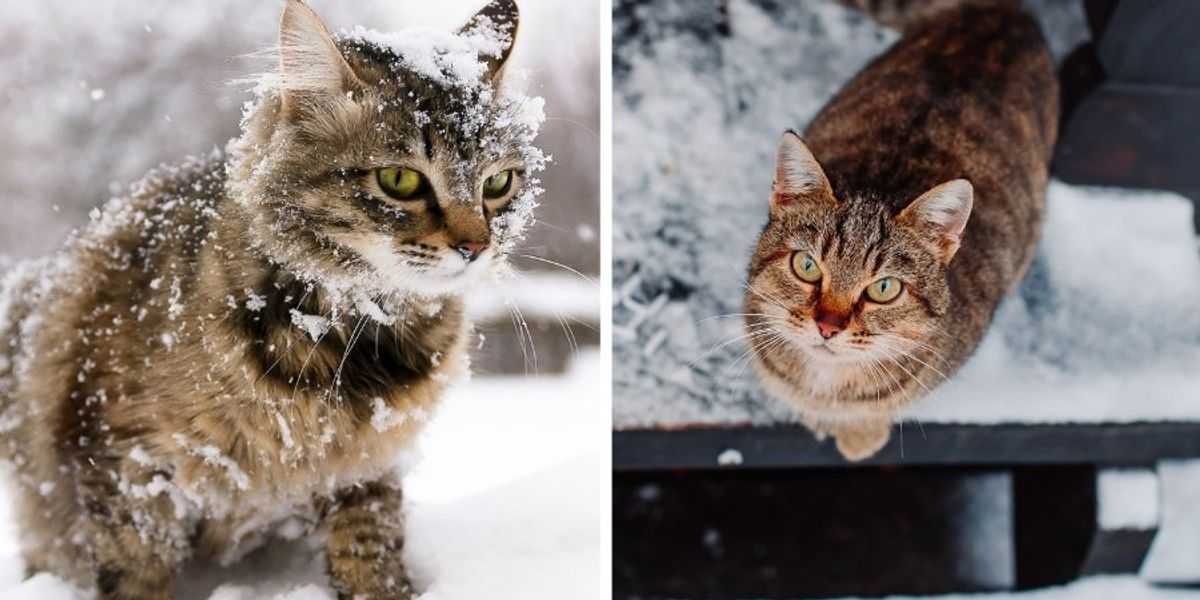Anyone who has had a cat knows how bringing a feline friend into your life has a huge impact in both positive and not-so-positive ways. Our cats can bring us great joy, but they also come with some quirks, quirks, and other things that people considering getting a cat should prepare for.
That’s why when someone asked, “What should you know before getting a cat?” on Reddit, thousands of cat owners chimed in with information and advice.
In previous generations, cats were considered largely self-sufficient. That’s still somewhat true for dogs, but we’ve learned a lot more about cats that have changed (and improved) the way cat owners care for their kitties.
Here are the top things people say those considering getting a cat should know before committing:
Cats come as they are
People often joke that their cats are odd, but it’s a universal truth. Cats are weird. If you’ve never had a cat and think they don’t have much personality, you’re dead wrong.
“Each cat has its own personality. It may not match your expectation.”
“Every cat is at least a little bit of a psychopath.”
“Cats are the best pets for people with control issues… Because nothing will give you non-stop lessons in something you can’t control like a cat.”
“That their character is completely luck of the draw. You might get someone who really enjoys people … or someone who hates them. Or someone who only wants to be near them but not be touched. Or someone, that will crawl on your lap every time it becomes You don’t know what kind of cat you will get.
“Cats have much stronger personalities than dogs do, and often they can’t be trained out of that personality like dogs can. If you get a kitten, it’s the luck of the draw if you get a cat that’s very cute and loving or a cat that’s standoffish and doesn’t like being pet Even two cats raised identically can be wildly different in how receptive they are to people like a lap cat likes to sleep with you, you should look into rescuing adult cats who have already developed their personalities.”
Kittens choose violence
If you think kittens are cute and cuddly, you couldn’t be more right. But they also have razor blades on their feet, and they will tear your extremities apart with them.
“As babies, they sometimes suffer violence.”
Kittens are cute, but their little claws and teeth are SHARP.Image credit: Canva
“Yeah, they start out cute and then bam – you’re covered in scratches and it’s all because the sock looked at them wrong.”
“They come with factory installed killer paws.”
“They all like violence. You can never predict when they will choose violence.”
“Getting another kitten will help with this!! They can be violent with each other and teach each other boundaries, instead of having a lonely violent kitten constantly cutting up your hands and feet.”
Cats like routine
For creatures that seem so aloof, cats are surprisingly very routine oriented and don’t like change much. Moving furniture, going out of town or changing their feeding schedule can throw them off and cause stress.
“Cats are big fans of routines. They know when breakfast/dinner is, when it’s playtime and when you come home. If their routine is disrupted and these things happen earlier or later than they’re used to, they can get upset.
They are also not fans of changes in their environment. A new person or pet moving in, furniture being rearranged, new food, new litter, etc. can all unsettle a cat, make them feel unsafe and drive them into hiding.”
“Don’t make sudden changes. It’s recommended that all changes be subtle and in small steps. If you have to move its bowl or litter box, it’s recommended to do it slowly. They don’t react. Moving to another house can be really traumatic or another city and leave them stressed for months.”
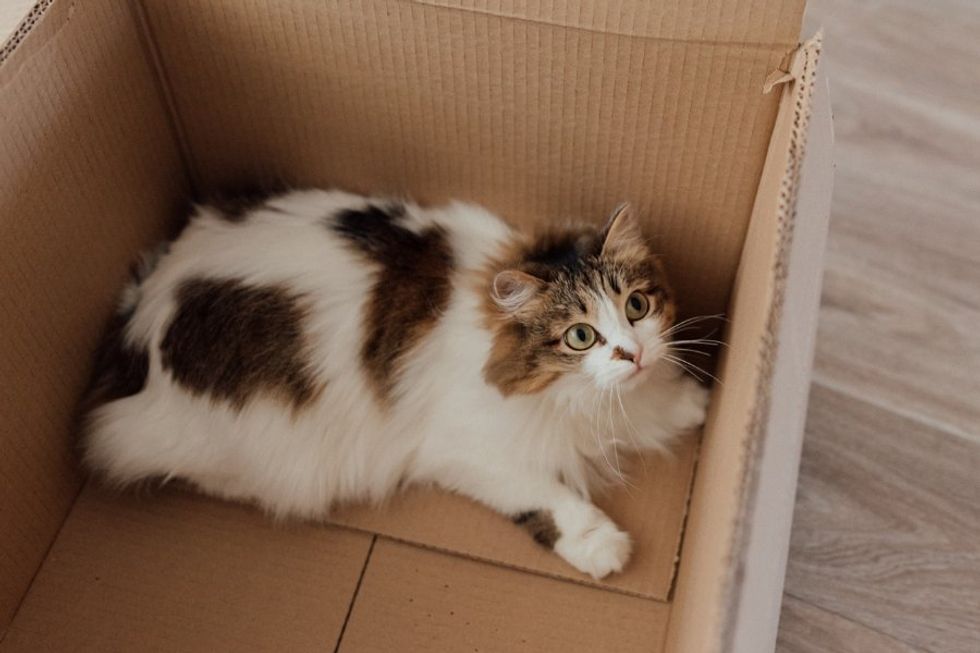 Changes like moving can be hard on cats.Image credit: Canva
Changes like moving can be hard on cats.Image credit: Canva
Cats like cleanliness – but also chaos
Cats are naturally clean, barring health or disability issues. They don’t need to be bathed like dogs and oddly enough their fur tends to smell really good. But they also want you to keep their litter box clean and will find ways to let you know if you fall short on that front.
Oh, and they also like to make a mess for fun, like total hypocrites.
“Keep the litter box clean. They don’t like it dirty. Cats like cleanliness.”
“If you keep the litter box clean, most cats (of course there are always exceptions) will greatly prefer it to anywhere else.”
“If you don’t keep their litter box in pristine, shiny, brand new condition, they’ll just poop on the floor right in front of it.”
“They don’t need to be bathed. They are self-cleaning!”
“If you leave a glass of water unattended, that glass will be in a broken puddle on the floor when you come back.”
“Mine would always wait for me to come back into view, then look me in the eye as she knocked the glass on the floor.”
Cats can be taken out of a bouquet
This one may come as a surprise to many people, but some plants, especially certain flowers, are very poisonous to cats. And some of them can’t help but chew on plants, making it a challenge to display flowers in your home. So expect a lot of “Is XYZ plant poisonous to cats?” Google searches.
“Many common houseplants can kill your cat. The same with bouquets of flowers. Lilies are great, but there are plenty of others. Check all existing plants in your house before the cat comes home, don’t let new plants in without checking you.”
“If you have houseplants, be prepared to get rid of those that are toxic to the cat. Some will take the risk, but the cat’s well-being is a higher priority than you like decor – which also applies to anything that can be crushed or eaten.”
“Lilies are the real danger. Some lily-like flowers, such as alstroemeria (Peruvian lily), are not true lilies, so they are not as problematic. But true lilies can cause kidney failure in cats.”
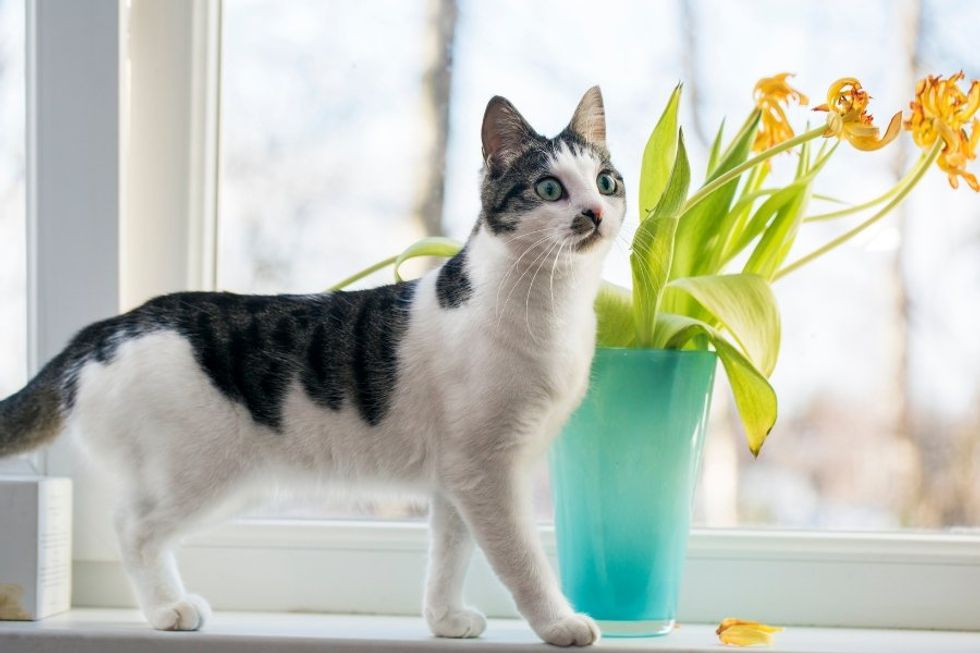 Some flowers can be fatal to cats.Image credit: Canva
Some flowers can be fatal to cats.Image credit: Canva
“My colleague’s cat is in end-stage kidney failure from being around lilies.”
“Plants can be a big risk; especially lilies, but many common houseplants are poisonous.”
Cats hide their suffering
Cats communicate in all sorts of ways – meowing, purring, growling, hissing, ekekek-and more – but they tend not to tell you when they are in pain or discomfort. Stoic little buggers, so regular vet checks and keeping an eye out for subtle behavioral changes is really important.
“They are really good at hiding symptoms. Make sure you get them checked regularly. If the cat starts to show symptoms of an illness, it’s probably already too late to fix it.”
“They don’t let you know when there’s something wrong with them … or, I should say, they do it in extremely subtle ways.
Dogs usually make it pretty obvious when something isn’t right with them. With cats; if you’re not paying attention – you won’t know it until it’s bad.”
“Sometimes ‘behavioral’ problems like hiding/going to the toilet outside the litter box are signs of health problems!”
Cats need their claws
Some people euthanize cats to try to save their furniture, but this is not a harmless procedure. Major veterinary organizations advise against it and provide alternatives to discourage problematic scratching behavior.
“Don’t let your cat reveal. Ever. It’s horribly painful and the equivalent of cutting off the first joint of all your fingers.”
“If you intend to expose a cat, DON’T get a cat.”
“This is so much. A friend of mine was thinking of getting her 1 year old kitten declawed and I had to tell her what they do and she was horrified. She has since trained him to use her scratching post and not her couch, and she occasionally trims them or gets the vet to do it.”
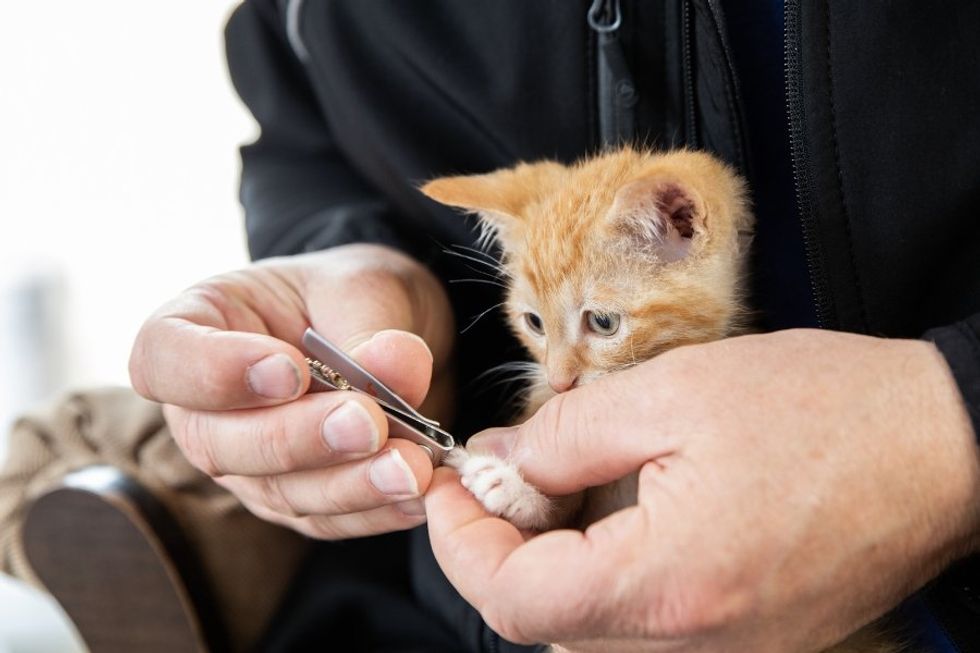 Trimming, yes. Declawing, no. Image credit: Canva
Trimming, yes. Declawing, no. Image credit: Canva
“Trim your little kitten’s claws regularly, even if all you take off is a hair’s breadth. Get them used to having their paws handled that way.”
Cats often do better in pairs
Cats can be lonely, but they often prefer to have their own furry friends. Paired cats will often play together, groom each other, and vent their “zoomic” energy.
“They typically do well in pairs! People don’t often think they need companionship, but they do.”
“Consider getting two. Hear me out. As kittens, two are far less work for the human because they can play with and entertain each other, and they’ll naturally teach each other boundaries like how not to bite or scratch too hard. As adults, I wouldn’t say it’s a huge increase in work or cost as far as litter and food.
Cats are naturally very social animals, despite pop culture representing otherwise. Some cats choose to be lonely, some cats have simply adapted to loneliness because they have never had a friend. Two cats really are better than one.”
Cats must be indoors
“Please consider making your cat an indoor cat. Outdoor cats have a higher death rate than indoor cats, which is pretty self-explanatory as there is a much higher rate of traffic accidents, attacks by other animals, getting lost/stuck in places. It’s not fair on your cat, bordering on neglect, just letting it run around unsupervised all day.
The other thing to say about outdoor cats is how destructive they are to the local ecology. They hunt for fun and each cat will be responsible for the death of probably hundreds of small birds, rodents, insects and lizards each year. Studies have shown that domestic cats have been directly responsible for the extinction of many species.
Outdoor cats are not a good idea for us, you and them…”
“An important thing to remember is that cats that live exclusively indoors are healthier and live longer. Cats that roam are at risk of being killed by cars and dogs and being injured by fighting with other cats or contracting diseases from other cats (feline AIDS) in Australia every year.”
“Keep your cat indoors. Cats that roam have an average lifespan of 2-5 years due to cars, dogs, toxins, other cats, weather, wild animals, disease…. Indoor cats can live 15-20 years, depending on how dedicated their owner is to regular vaccinations and check-ups, quality food and mental, social and physical stimulation.”
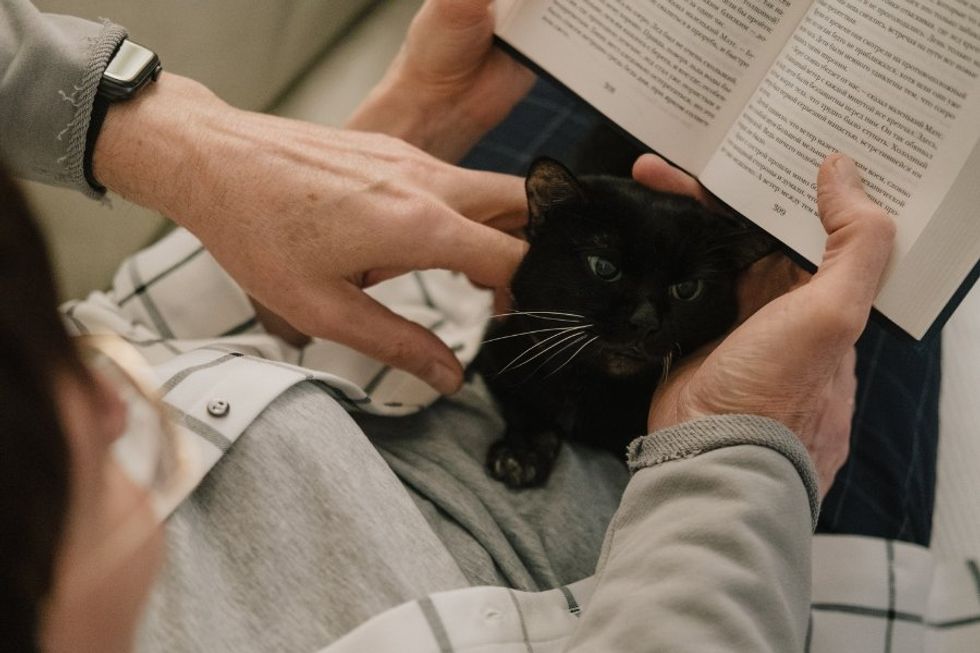 Cats can be sweet companions.Image credit: Canva
Cats can be sweet companions.Image credit: Canva
Cats are a liability
Indoor cats live a long time, so if you start with a kitten, be prepared for the long haul. But also be prepared to be attached to your cat and miss them a lot when they are gone.
“It’s a 12-20 year commitment. Make sure you are:
- Not allergic
- Financially able to provide food and medical care (I recommend getting pet insurance, it saved my cats life several times)
- Allowed to have pets where you live.”
“It can be a 15- to 20-year commitment. They’re also the best companion ever.”
“Yeah, no one told me when I was 19 that this cat would be alive when I was 40!”
“And by the end you’ll wish it was longer.”
“Your cat(s) will be very important to you, so make sure you are ready for an emotional attachment because even when they make you mad, they are now your master and you must give them the attention and love they need requires whatever it entails.”
It’s basically cat ownership wrapped in a nutshell.
